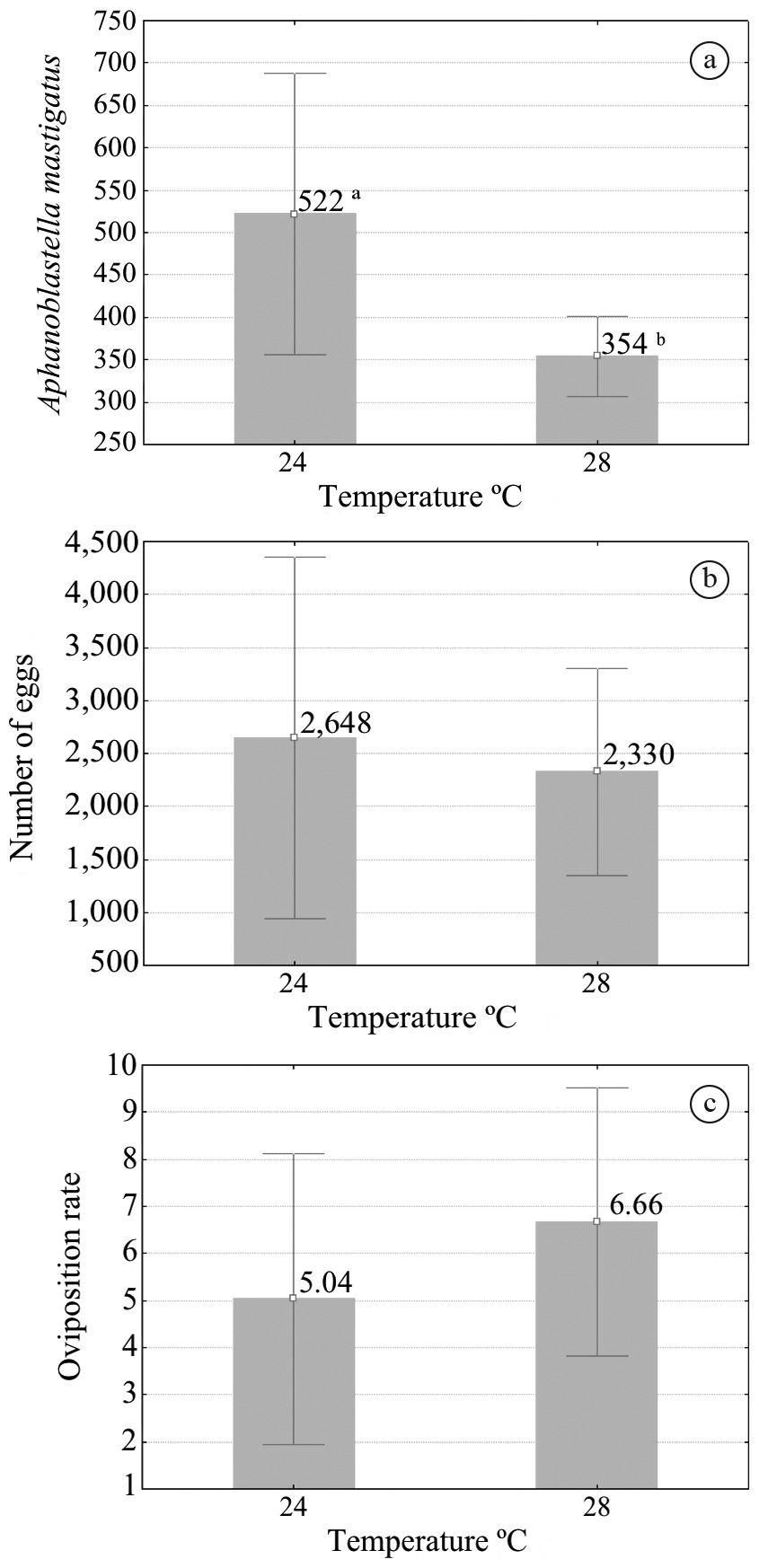Abstract
Several environmental parameters may influence biological processes of several aquatic invertebrates, such as the Monogenea. Current analysis investigates oviposition, hatching success and infestation of Aphanoblastella mastigatus, a parasite of the silver catfish Rhamdia quelen at different temperatures (~ 24 and 28 °C) and salinity (by adding sodium chloride to water, at concentrations 0, 5 and 9 g/L) in laboratory. There was no significant difference in oviposition rate and in A. mastigatus infestation success at 24 and 28 °C. On the other hand, the concentration 9 g/L of sodium chloride in the water impaired the parasite’s survival and the viability of the eggs. Results show that its usage is efficient as a possible prophylactic treatment. Eclosion rate of A. mastigatus’s eggs was significantly higher at 28 °C, although it was significantly less from 5 g/L. Two oviposition peaks (06h15 and 18h15) occurred during a 24-hour period, or rather, during the highest variations in luminosity. Further studies are recommended with greater temperature intervals and more intense experimental infestations to verify the effects of temperature in the life span and infestation success of A. mastigatus.
Keywords:
silver catfish; parasitology; water quality; experimental infestation; prophylaxis

 Thumbnail
Thumbnail
 Thumbnail
Thumbnail
 Thumbnail
Thumbnail
 Thumbnail
Thumbnail
 Thumbnail
Thumbnail




